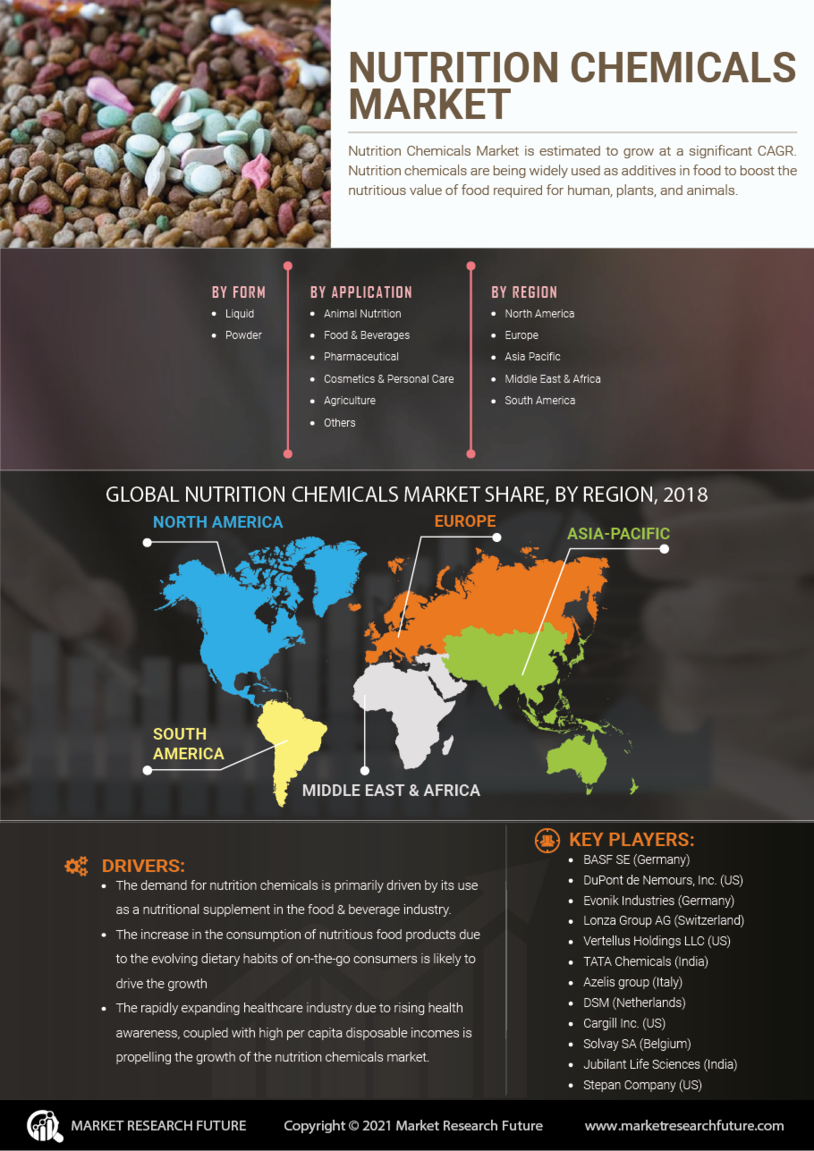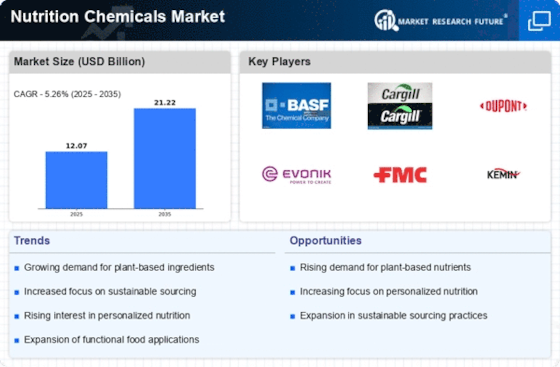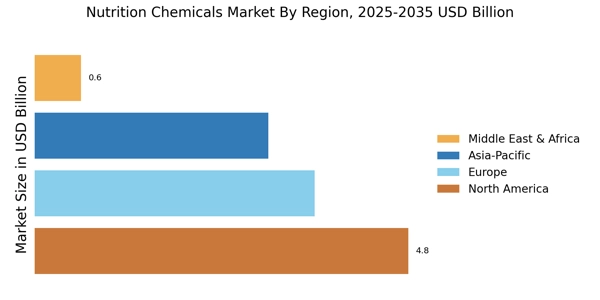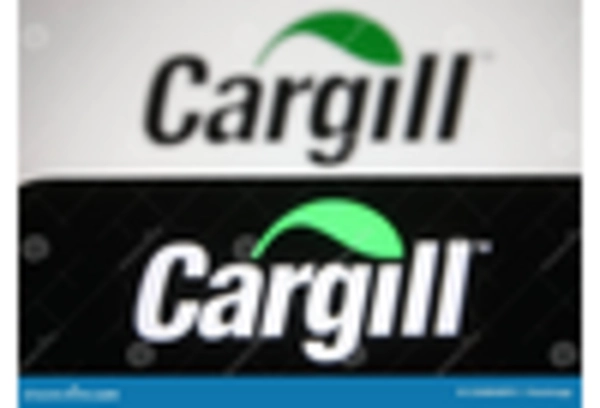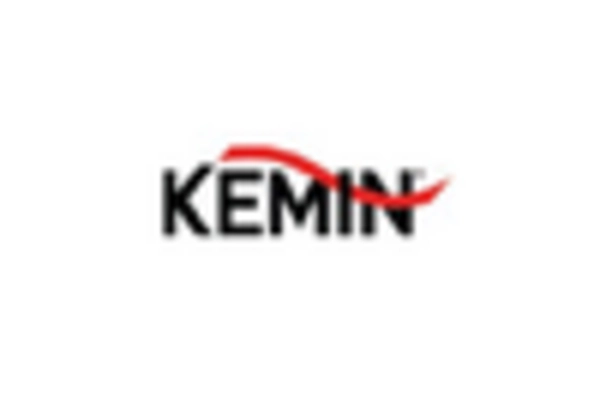Increasing Health Awareness
The Nutrition Chemicals Market is experiencing a surge in demand driven by rising health consciousness among consumers. Individuals are increasingly prioritizing their well-being, leading to a greater focus on nutrition and dietary supplements. This trend is reflected in the market data, which indicates that The Nutrition Chemicals Market is projected to reach USD 230 billion by 2027. As consumers seek products that enhance their health, nutrition chemicals play a pivotal role in formulating supplements that cater to these needs. The emphasis on preventive healthcare further propels the demand for nutrition chemicals, as they are integral in developing products that support immune function, energy levels, and overall vitality. Consequently, manufacturers are investing in research and development to create innovative nutrition chemical solutions that align with consumer preferences.
Rising Demand for Functional Foods
The Nutrition Chemicals Market is witnessing a notable increase in the demand for functional foods, which are products that provide health benefits beyond basic nutrition. This trend is largely driven by consumers seeking foods that can aid in disease prevention and promote overall health. Market data suggests that the functional food market is anticipated to reach USD 275 billion by 2025. Nutrition chemicals are essential in the formulation of these products, as they enhance nutritional profiles and provide specific health benefits. Ingredients such as omega-3 fatty acids, antioxidants, and vitamins are increasingly incorporated into everyday foods, appealing to health-conscious consumers. This growing interest in functional foods is likely to propel the demand for nutrition chemicals, as manufacturers strive to meet the evolving preferences of consumers.
Regulatory Support for Nutritional Products
The Nutrition Chemicals Market is benefiting from supportive regulatory frameworks that encourage the development and marketing of nutritional products. Governments and health organizations are increasingly recognizing the importance of nutrition in public health, leading to initiatives that promote the consumption of dietary supplements and functional foods. For instance, regulations that streamline the approval process for new nutrition products can facilitate market entry for innovative solutions. Additionally, guidelines that endorse the use of specific nutrition chemicals in food products can enhance consumer trust and acceptance. As regulatory bodies continue to advocate for improved nutrition, the market for nutrition chemicals is likely to expand, providing opportunities for manufacturers to innovate and diversify their offerings.
Growth of E-commerce in Nutritional Products
The Nutrition Chemicals Market is experiencing a transformation due to the rapid growth of e-commerce platforms. Online retailing has become a preferred shopping method for consumers seeking nutritional products, offering convenience and a wider selection. Market data indicates that the e-commerce segment for dietary supplements is projected to grow at a CAGR of 15% through 2026. This shift in consumer behavior is prompting manufacturers to enhance their online presence and invest in digital marketing strategies. E-commerce not only allows for direct consumer engagement but also facilitates access to a broader audience, including niche markets. As the trend towards online shopping continues, the demand for nutrition chemicals is expected to rise, as consumers increasingly seek out specialized products that cater to their health and wellness needs.
Technological Advancements in Food Processing
Technological innovations in food processing are significantly influencing the Nutrition Chemicals Market. Advanced techniques such as microencapsulation, fermentation, and enzymatic processing are enhancing the efficacy and bioavailability of nutrition chemicals. These technologies enable the development of functional foods that not only provide essential nutrients but also offer health benefits. For instance, the use of fermentation in producing probiotics has gained traction, with the probiotics market expected to reach USD 77 billion by 2025. Such advancements allow manufacturers to create tailored nutrition solutions that meet specific dietary needs, thereby expanding their product offerings. As the food industry continues to evolve, the integration of cutting-edge technologies in nutrition chemical production is likely to drive market growth and innovation.
